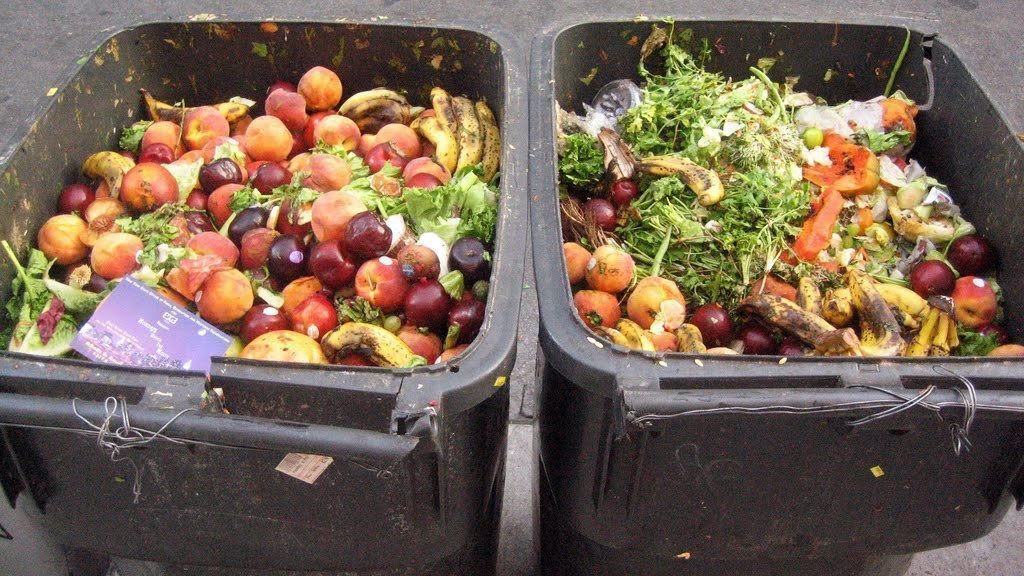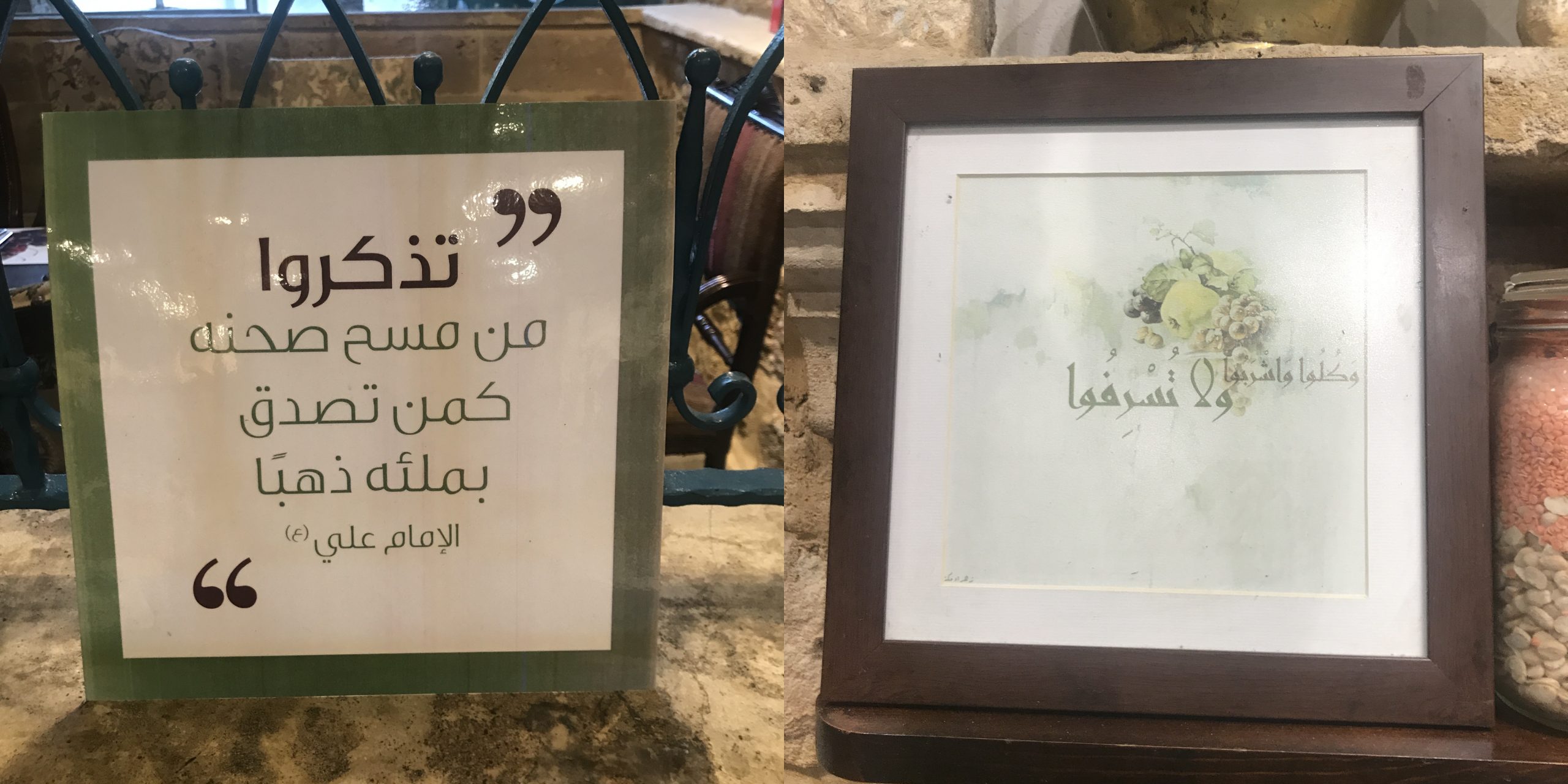Roughly one third of the food produced in the world for human consumption every year – approximately 1.3 billion tons – gets lost or wasted. [1]
Now that some of the coronavirus restrictions are beginning to ease, many are excited to get back to eating out. Having a meal at a restaurant or café is great for leisure and socialisation, but can sometimes become necessary such as in the case of travel. However, there is one major problem which is very common in these situations, and that is the wastage of food. Undoubtedly the issue of food waste is not limited to dining out –food can be wasted when cooking, eating at home, parties and community gatherings as well. This article focuses on the problem of food waste in restaurants and cafés since people are more likely to leave food on their plate to be thrown out compared to at home, where most would store leftovers in their refrigerator for the next day. The principles behind avoiding food waste, however, apply to all the settings mentioned above as well, so it is of immense importance that you do your part in ensuring food is not wasted no matter where you are.
Before we try to understand the importance of avoiding food waste, let’s go back to the basics. Undoubtedly, we all know the purpose of food but due to the forgetful nature of the human being (insān), we may forget its true essence and why we even eat it, so we need to be constantly reminded.
What is the purpose of food?
Just like Allah (swt) has created us, He also created for us the means for survival and sustenance – most notably: food. When we eat, we are providing our cells and our bodies with nutrients and energy to allow us to continue functioning. Food powers our brains, our muscles and all our bodily functions. Put simply, without food we cannot survive.
Why is it important that we don’t waste food?
1. Allah (swt) does not love those who waste
Even if we don’t understand the environmental, psychological and societal impacts of wasting food, knowing that it is a sin should be enough for us to start avoiding it. Allah (swt) has directly commanded us not to be wasteful in the Holy Qur’an [2]:
كُلُوا وَاشْرَبُوا وَلَا تُسْرِفُوا ۚ إِنَّهُ لَا يُحِبُّ الْمُسْرِفِينَ
Eat and drink, but do not waste. Surely He does not love the wasteful.
As Muslims we submit fully to the commands of our Creator, and our goal must be to please Him and be loved by Him. Allah (swt) is making the powerful statement that those who are wasteful are not loved by Allah (swt); what even is the value of our existence on this earth if we are not loved by Allah (swt)? Out of His Mercy, He mentions on various occasions in the Holy Qur’an the characteristics of those whom He loves and those whom He does not love, to make it easy for us to be guided towards the straight path. When He says He does not love the wasteful, we must take it seriously and make real change in our life so that we can achieve His love, and therefore ultimate success.
2. Food is a blessing and miracle that we must appreciate
Taking the wastage of food lightly indicates a lack of appreciation for that food. If you appreciate something, you won’t allow yourself to waste it. Let’s see what Allah says in the Qur’an [3]:
فَلْيَنظُرِ الْإِنسَانُ إِلَىٰ طَعَامِه أَنَّا صَبَبْنَا الْمَاءَ صَبًّا ثُمَّ شَقَقْنَا الْأَرْضَ شَقًّا
Then let mankind look at his food, How We poured down water in torrents, Then We broke open the earth, splitting [it with sprouts]
How did this food make it to our plate? What processes had to take place? How does the rain form, and how does it then nourish a small, lifeless seed and give it life? How does this seed sprout, and then emerge from the solid earth? In tafsīr (interpretation) of this ayah, Sayyed Fadlallah reflects:
“When water enters the earth to open up it’s depths, it mixes with its soil and transforms its cavity into wide reservoirs from which springs burst, and rivers begin to flow. The soil is transformed into life which interacts with the seeds that Allah wonderfully created and deposited into the ground to grow in the components and nutrients of the soil, only to then split the earth once again, face the world and breathe its air. One may notice how a slender plant splits the strong, hard earth without any element of strength other than Allah’s Divine will, implemented through the laws of fragmentation and openness of the earth on the process of growth of the plant in the soil.” [4]

The miraculous process of a corn plant’s growth from the soil (Source)
By instructing us to look at our food, Allah (swt) is prompting us to discover a new perspective towards something we see everyday. This food that we need in order to survive has been crafted into existence with such an intricate design and so many extraordinary processes have occurred for it to make it to this plate.
فَكُلُوا مِمَّا رَزَقَكُمُ اللَّهُ حَلَالًا طَيِّبًا وَاشْكُرُوا نِعْمَتَ اللَّهِ إِن كُنتُمْ إِيَّاهُ تَعْبُدُونَ – 16:114
So eat from the good, lawful things which Allah has provided for you, and be grateful for Allah’s favours, if you [truly] worship Him [alone].
Appreciating food past its surface value reminds us that it is a blessing from Allah (swt) and we cannot take it for granted whatsoever. Food is precious no matter the setting, and being in a fancy restaurant does not justify throwing out any amount of food.
3. The societal impact of food waste
Islam is a religion that keeps all levels of society in mind, and as Muslims we must do the same. We have to be grateful for every mouthful we have, since our actions directly impact the lives of others. It is narrated that Imam Ali ibn Abi Talib (as) said [5]:
فَمَا جَاعَ فَقِيرٌ إِلَّا بِمَا مُتِّعَ بِهِ غَنِيٌّ
“No poor person goes hungry except as a result of what the rich person enjoys”
As Muslims we believe that while each of us is an individual human being, we must live for the benefit of those around us not just our own, as society is not but a collection of individuals. Therefore, if we see that there are people around the world who are starving, we mustn’t dissociate ourselves from the issue as if it has nothing to do with us. Imam Ali powerfully draws the correlation between the poor and the rich – any suffering of the poor is the outcome of the extravagant lives led by the rich. It must be noted that a rich person is anyone who has more than what he needs, not just those who are millionaires and live in palaces etc., as is often misconceived. Essentially, if you have more belongings, food, money etc. than you need, you are considered rich. So, Imam Ali is urging us to feel a sense of responsibility towards the poor so as to lead us to take real action. This concept is further confirmed by statistics:

Perfectly edible food thrown into the bin (Source)
“All the world’s nearly one billion hungry people could be fed on less than a quarter of the food that is wasted in the US, UK and Europe.” [6]
“We are over 7 billion people on this planet, of which 925 million are starving. Yet we annually lose and waste 1.3 billion tons of food – or enough to feed 3 billion people.” [7]
The conclusion we can draw from this (albeit simplified), is that if we eliminate food waste on a global scale, we could eliminate hunger!
4. The environmental impact of food waste
When we talk about food waste, we are usually referring to the food that gets thrown into the bin and eventually ends up in landfill. Food waste in landfill decomposes and releases greenhouse gases such as methane, which has “21 times the global warming potential of carbon dioxide [8]. In addition,“eliminating global food waste would save 4.4 million tons of C02 a year, the equivalent of taking one in four cars off the road.” [9] Planet earth is a trust and a gift from Allah (swt) to us, and as such we have to look after it. Reducing food waste when eating out will unquestionably improve the environmental condition of this beautiful planet.
How do we stop wasting food when we eat out?
Hopefully, after knowing all of the above points we now understand why it is so important to reduce food waste. Below are some practical tips for both customers and shop-owners to reduce food waste in the restaurant or café setting.

Plates of leftovers filled with food to be thrown out (Source)
Tips for eating out:
- Make it a habit to say bismillah arrahman arraheem before you begin, and make a duaa’ thanking Allah (swt) for the blessing of food in front on you. This will make you appreciate your food and recognise it as a blessing.
- Order less, not more. If you are four people, for example, you don’t necessarily have to order four different dishes. You can always order more if you feel like it’s not enough. This is especially important when travelling since it may be difficult to store and heat leftovers.
- Take containers with you. Keep empty reusable containers in your car, just like you keep reusable bags for the supermarket. This makes it easier to take leftovers and adds the bonus of avoiding using the single-use containers most restaurants offer!
- Read dua’s or adhkaar before you eat. This will make you appreciate your food and therefore be less likely to waste. For example:
بِسْمِ اللّٰهِ. أَللّٰهُمَّ اجْعَلْهَا نِعْمَةً مَشْكُورَةً تَصِلُ بِهَا نِعْمَةَ الْجَنَّةِ.
Bismillah. O Allah, make it an appreciated blessing by means of which the bounties of paradise are attained
- Only order what you think you would eat. Reading a delicious menu with an empty stomach makes it very tempting to order excessive food. Rationalise in your mind what you realistically think you can finish and only order that. Especially in a buffet setting, it may seem tempting to fill up your plate as much as possible, but tell yourself you must only take what you really think you can eat.
- Don’t be too adventurous. It may be tempting to try out new dishes and flavour combinations, but try to be realistic and don’t order something that you will most likely not enjoy and therefore will not finish.
- Don’t order separately for kids. Most children eat only a mouthful of food when eating out, and the extra dishes means more food will likely be thrown out. Order food that both you and your child enjoy so you can share it and avoid leftovers.
- Don’t be embarrassed. Some may find it embarrassing to scoop up all the leftovers once the meal is over. Just know that you are doing the right thing, and more people will start doing it too if you are persistent!
- Know that leftovers may mean you don’t have to cook tomorrow! Who wouldn’t be happy with that?
Tips for restaurant owners:
You have the power as a business owner to control the food waste that takes place in your business. Here are some tips to help you do that:
- Make takeaway easy. Once you see that customers are finished eating or at payment, always offer a takeaway option. This will give them confidence or maybe even just a reminder that they shouldn’t leave their leftovers.
- Provide free cardboard/aluminium containers. Charging for takeaway containers may discourage people from taking their leftovers.
- Include quotes about food wastage on the menu or around the shop. Not only will this provide inspiration and possibly a sense of guilt about leaving leftovers, this also lets customers know they won’t be judged for taking leftovers and that the restaurant encourages this.

Prints displayed in Assaha Restaurant in Beirut, Lebanon. They read (left): “Remember, the one who wipes his plate [clean] it is as if he donated the plate’s worth in gold” – Imam Ali. (right): “eat and drink, but do not be wasteful” Qur’an 7:31
- Make small serving sizes. Don’t design serving sizes that are most likely too much for one person to eat. If a certain dish seems like it can feed more than one average person, indicate this on the menu.
- Have a composting system in place to dispose of food waste from cooking and from leftovers.
- Charge for leftovers! In most cases, people would rather take their leftovers than pay for leaving them, so have a fee for leftover food to discourage them from leaving it behind. In a lecture given by Mufti Menk [10], he mentions a restaurant chain in Malaysia that makes customers weigh their plate of food once they’re finished, and charges them for the amount of food they leave behind. We need more food outlets that have these kinds of systems in place.
Just think of it this way – so much of what you throw straight into the bin may have a use if you gave it a chance:
إن القصد أمر يحبه الله وإن السرف أمرٌ يبغضه الله، حتى طرحك النواة، فإنها تصلح للشيء، وحتى صبّك فضل شرابك
Being sparing and economical is a matter loved by Allah (swt), whereas extravagance and wastefulness is despised by Him. Even if you are just throwing away a seed [e.g. date seed], it could be useful for something else, and even [applies] to you pouring away the leftover of your drink. [11]
So, if you want to be loved by Allah (swt), save the planet, abolish hunger and avoid punishment on the Day of Judgement – use these easy tips to reduce your food waste!
By Noor Alsaffar
References
[1] https://stopwastingfoodmovement.org/food-waste/food-waste-facts/
[2] Qur’an 7:31
[3] Qur’an 80:24-26
[4] Min Wahy Al-Qur’an by Sayyed Muhammad Hussain Fadlallah. http://arabic.bayynat.org.lb/HtmlSecondary.aspx?id=4628. Original Arabic text:
عندما ينفذ الماء إليها ليفتح أعماقها، ويمتزج بتربتها، ويحوّل جوفها إلى خزّاناتٍ واسعةٍ تتفجر منها الينابيع، وتجري منها الأنهار، وتحوّل التراب إلى حياة تتفاعل مع البذور التي أبدع الله خلقها وأودعها في الأرض، لتنمو في أجزاء التربة وعناصرها الغذائية، ثم لتشق الأرض من جديدٍ، لتخرج إلى وجهها، وتتنفس هواءها، وقد يلاحظ الإنسان، كيف تشق النبتة النحيلة الأرض الصلبة القويّة، من دون أي عنصر للقوّة إلا تقدير الله، في ما جعله في طبيعة الأرض من قوانين التفتت والانفتاح على عملية نمو النبتة في أجزاء التربة.
[5] Nahjul Balagha, Saying 328
[6] https://olioex.com/food-waste/food-waste-facts/
[7] https://stopwastingfoodmovement.org/food-waste/food-waste-facts/
[8] https://www.forbes.com/sites/quora/2018/07/18/what-environmental-problems-does-wasting-food-cause/#26825442f7a6
[9] https://www.ozharvest.org/what-we-do/environment-facts/
[10] Don’t Waste Food When You Have Eaten: https://www.youtube.com/watch?v=GgGCRxoZ1v4
[11] Hadith narrated by Imam Ja’far al-Sadiq (http://arabic.bayynat.org.lb/HtmlSecondary.aspx?id=5604)





